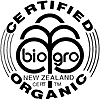Brussels, March 27, 2006
Proposed EU Regulation on Organic Agriculture Undermines Integrity and Credibility of System International Organic Movement Expresses Concern at March 27 Conference in EU Parliament
Brussels, March 27, 2006 – Today, the Commission’s proposal on the Revision of the Organic Regulation(1) will be discussed in the European Parliament at a stakeholder conference entitled ’Organic farming: Ready for the next Decade’(2). The IFOAM EU Group, which organized the conference together with the responsible rapporteurs from the European Parliament,(3) considers the public discussion to be an important step in addressing the sector’s major concerns. The decision on the new Regulation will have a crucial impact on the future development of organic farming, as it will define its new legal framework.
Francis Blake, President of the IFOAM EU Group, stated that “it was agreed upon in the European Action Plan for Organic Food and Farming to amend the current regulation. However, we are taken aback by the Commission’s proposal of a total revision of the current regulation, which potentially changes the character of Organic Agriculture altogether.”
The timeline for deciding upon the proposed regulation is extremely tight, and the practical and legal implications of the proposal for the new Regulation largely remain unclear. Therefore, the IFOAM EU Group urges the European Council and the European Parliament to now take sufficient time for meaningful consultation to clarify the legal impact of the proposal and to consider the sector’s major concerns.
It is in the interest of the European Community and the organic movement to ensure the institution of a regulation that allows organic farming to continue its positive and dynamic development. “Quality prevails over speed”, noted Marco Schlueter, coordinator of the group.
On the occasion of today’s conference, the IFOAM EU Group will come up with a list of key questions that need clarification before an assessment of the full impact of the proposal can be undertaken.(4) Additionally, the appraisal of the revision proposal will be presented from the point of view of the organic movement, expressing that ‘Several proposed changes fundamentally threaten the core of organic agriculture as a production and processing system originating in, and still developing as a result of, private and ‘grass roots’, local and national initiatives.’
Major concerns of the organic movement are:(5)
- Proper and formal stakeholder involvement is not addressed
- The new inspection & certification framework (under 882/2004) alters the inspection system for organic farming
- The new decision making structure transfers power away from member states and towards the Commission without any means of balancing this with greater democratic or stakeholder involvement
- The contribution and potential to strengthen the self-responsibility of the organic sector at all the levels at which it works (from local to international) is at best ignored, and at worst actively diminished and discriminated against.
From the perspective of the international organic movement, one of the concerns is the lack of stakeholder involvement. IFOAM prides itself upon the clear and transparent procedures for providing input to the organic standard setting process, a hallmark of the integrity of the IFOAM Organic Guarantee System, which is built upon trust and consumer confidence. In addition, IFOAM is concerned about the Commission’s exclusion of thorough and well-developed mechanisms and private sector tools to aid in the evaluation and recognition of third world certification bodies and thus the approval of imports into the EU. Angela B. Caudle, IFOAM’s Executive Director emphasized that “the proposed EU regulation has impacts beyond the EU. The IFOAM Accreditation System already guarantees conformity with the EU rules, and in fact is a far more stringent and credible system than any government regulation in existence. Recognition and integration of IFOAM’s system in the EU regulation as a mechanism for import approval would not only be a wise use of limited resources, but would also bolster the credibility and effectiveness of the regulation. The role of the private sector as the engine of development in the organic sector must be recognized, not hampered.”
References:
(1) The European Commission published on December 21, 2005 its “Proposal for a Council Regulation on organic production and labelling of organic products (21/12/2005)”
http://europa.eu.int/eur-lex/lex/LexUriServ/site/en/com/2005/com2005_0671en01.pdf
(2) Conference Program: http://www.ifoam.org/about_ifoam/around_world/eu_group/pdfs/Microsoft_Word__06_03_27_Conference_OrganicRegulation2.pdf
(3) Rapporteurs of the European Parliament
Marie-Hélène Aubert – MEP, rapporteur on the revision of the EU regulation on organic agriculture
F.W. Graefe zu Baringdorf – MEP, rapporteur on labelling and control of organic products
(4) http://www.ifoam.org/about_ifoam/around_world/eu_group/pdfs/VIEW_Microsoft_Word__Proposed_questions_for_EU_Reg_revision_27.3.2006_final.pdf
(5) Position paper of the IFOAM EU Group:
http://www.ifoam.org/about_ifoam/around_world/eu_group/pdfs/IFOAMEU_Revision_positionpaper_27.02.2006.pdf
IFOAM Press Release, Responsible: Angela B. Caudle, Contact: Neil Sorensen
Head Office Contact
Charles-de-Gaulle-Str. 5
53113 Bonn, Germany
Tel: +49-228-92650-10
Fax: +49-228-92650-99
Email: headoffice@ifoam.org
http://www.ifoam.org
















